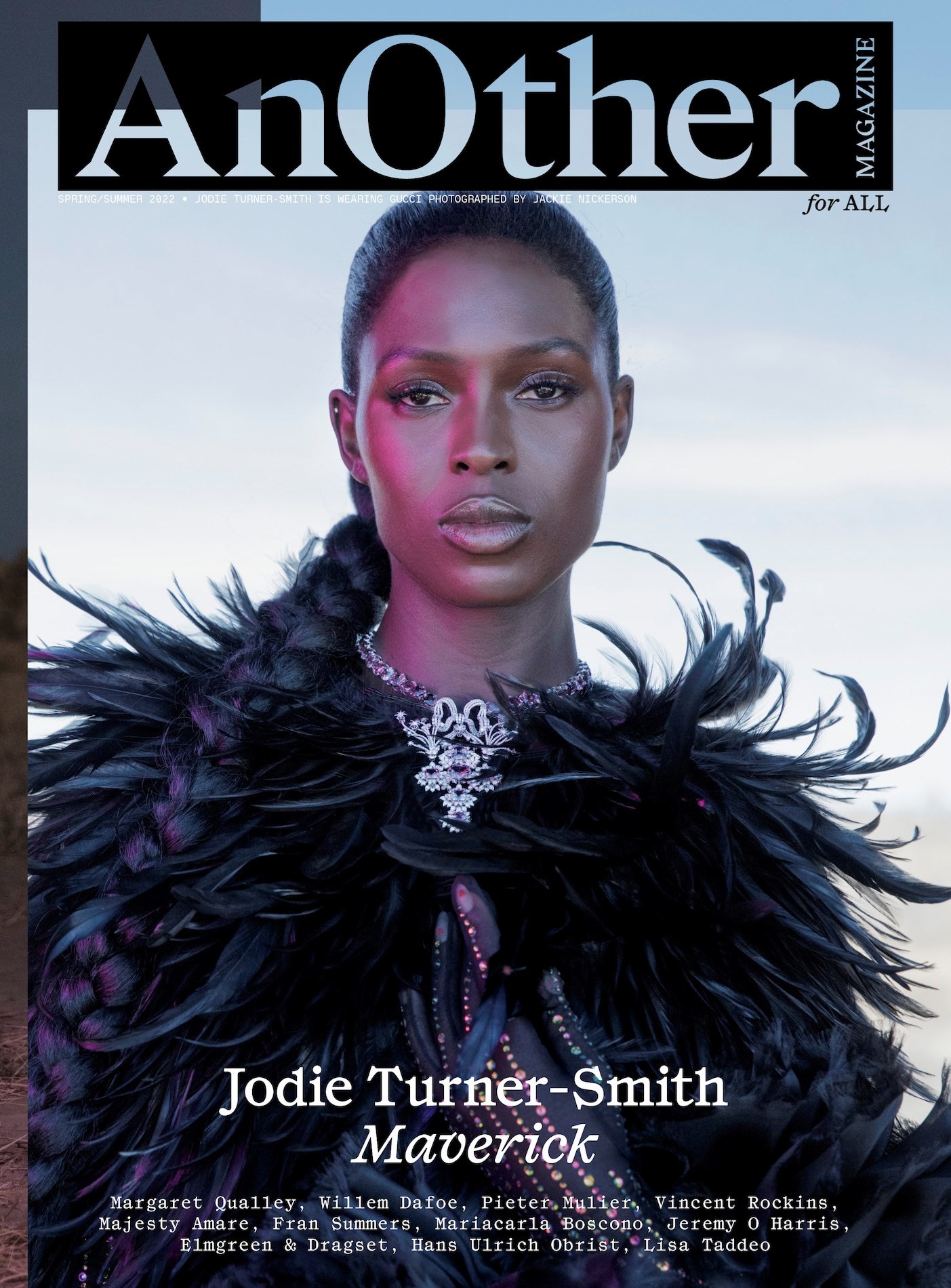This article is taken from the Spring/Summer 2022 issue of AnOther Magazine:
In 2021, Jodie Turner-Smith made history as she played history, becoming the first Black actor to take on the role of the doomed Queen Anne Boleyn. In Turner-Smith’s hands the most troubled and controversial of Henry VIII’s six wives was as fierce as she was tender: as believable in her unbridled ambition and overwhelming grief as she was dignified – majestic. That is a quality Turner-Smith seems to have been born with, one that elevates her characterisations, giving a nobility to her Angela “Queen” Johnson – the criminal defence lawyer turned outlaw in Melina Matsoukas’s 2019 film Queen & Slim – and, last year, to her unexpected appearance as part of Alessandro Michele’s Love Parade show for Gucci. Back then, an uplifting display of both fashion and the people who wear it best – stars – played out on Hollywood Boulevard; here, we move that diverse parade of beautiful people to the desert outside Los Angeles, shooting Turner-Smith and a cast of supporting characters over the course of a day – dawn to dusk – clothed in Michele’s designs. Alongside this, Turner-Smith talks to writer, actor and director Jeremy O Harris about transformative love, motherhood, the responsibility of storytelling and her role in Noah Baumbach’s upcoming adaptation of Don DeLillo’s White Noise.
Jeremy O Harris: This is such a crazy year for you. You have so many new things on your plate, but the first thing I want to talk to you about is, what’s it like having your daughter? As your friend, who’s watched you grow up over the past decade and become the woman you are now, I feel like every day as a mom changes you in significant ways. How do you feel seeing your daughter grow every day?
Jodie Turner-Smith: It’s incredible to watch a person gain an understanding of the world and be beside them as they conceive of every single thing. It’s like experiencing life again, because you are seeing them discover a tree, the ocean, a shark. We were looking at sharks in the water today – we’re in the Bahamas. One of the best parts about parenting is that you get to learn everything again because you see the world anew through innocent, fresh eyes. It’s humbling and beautiful and exciting – and it’s really emotional.
JOH: I think about some of the projects you’re doing this year and realise that it’s only really just now that people are interacting with your Anne Boleyn. It’s this great story about a young woman, a complicated mother and someone who had a really difficult life. Your lens on Anne Boleyn is the thing I was most excited about when it was announced and you did not disappoint. What was that like, stepping into that role and also stepping into so much history?
“As a dark-skinned Black woman, my body is politicised. Everything I do is political. My existence is political” – Jodie Turner-Smith
JTS: Well, when I accepted that job, I was so raw with motherhood. And I use the word raw because I feel like it is such a raw-feeling experience. The transformation that you go through internally, while it is incredible and epic and beautiful, birthing this living creature that you held inside your body, your body grows an entire organ to feed this child. And then when that child is born, that organ detaches itself from the inside of your body and you birth that out too, the placenta. And it leaves a huge wound that takes time to heal. And five months out from that, I was still extremely raw.
JOH: Oof.
JTS: People have asked me, “Did you have any worries about taking it on?” Anytime something creative comes across your path that excites you and lights you up, the first instinct is to be like, “Fuck, yeah.” You say yes. And then you’re like, “Oh fuck.” There is also the rest of the world and their opinions and how they’re going to respond to this. That is also going to affect me. I am not creating inside a bubble, which would be really nice sometimes. One thing I admire about theatre is that there’s so much more freedom to portray others. And maybe it’s because you are so connected to the audience that they’re willing to drop the veil, whereas in film and television, people are thinking that they’re meant to be presented with an imitation of reality – they’re less willing to make those allowances. But this project is cool – symbolically. This idea of Anne as an outsider because of her upbringing, the way that she was a disruptor. It was interesting to tell her story in a different way, because I saw The Other Boleyn Girl [2008], which I loved at the time. I thought Natalie Portman was amazing in that, but it was a very specific portrayal of Anne that goes with that negative history that people have sometimes recorded about her. And at this point in my life as an adult woman, I think about any woman in history who was super powerful and who is written about as this horrible person, I take it with a grain of salt – men were recording that history and were threatened by that power.
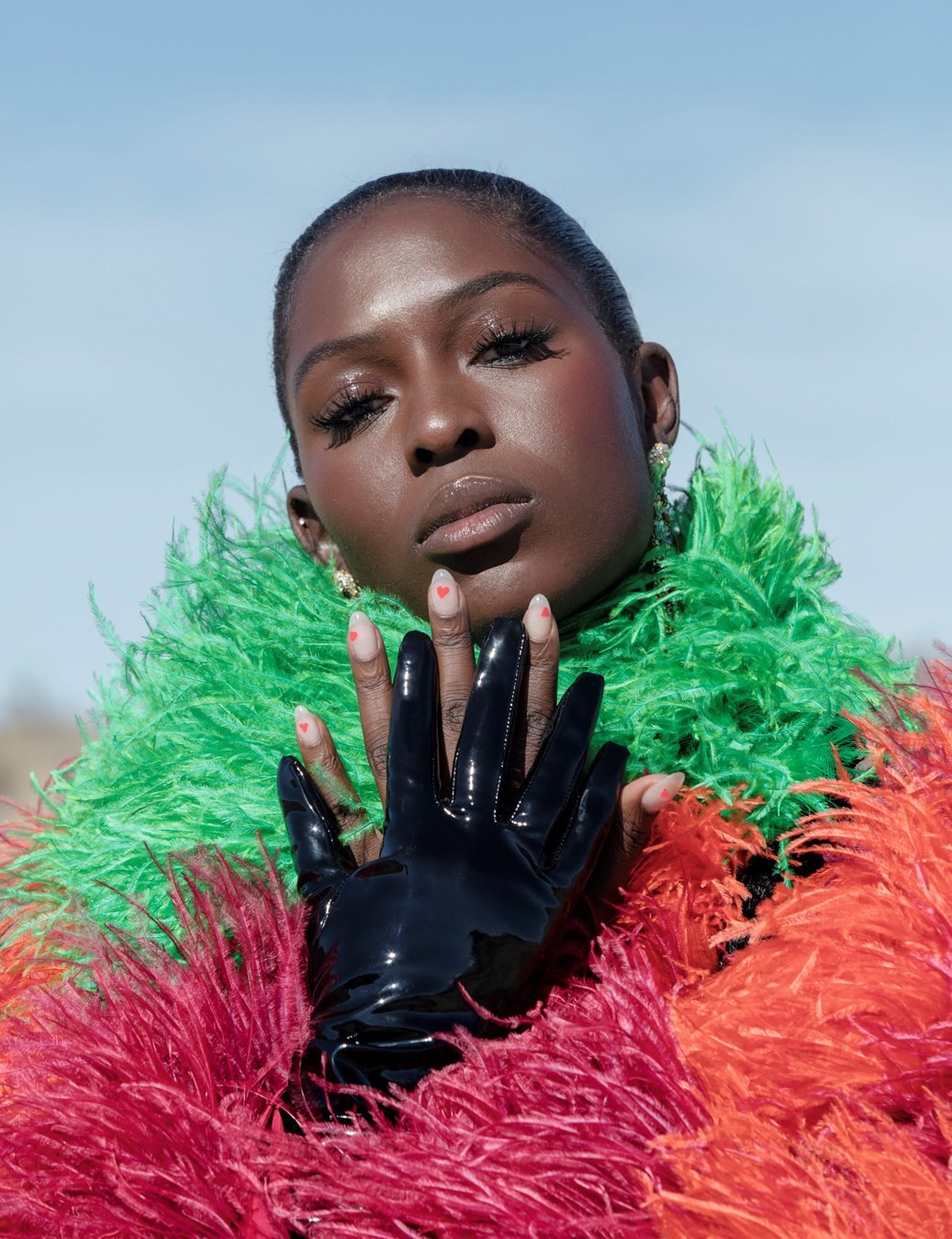
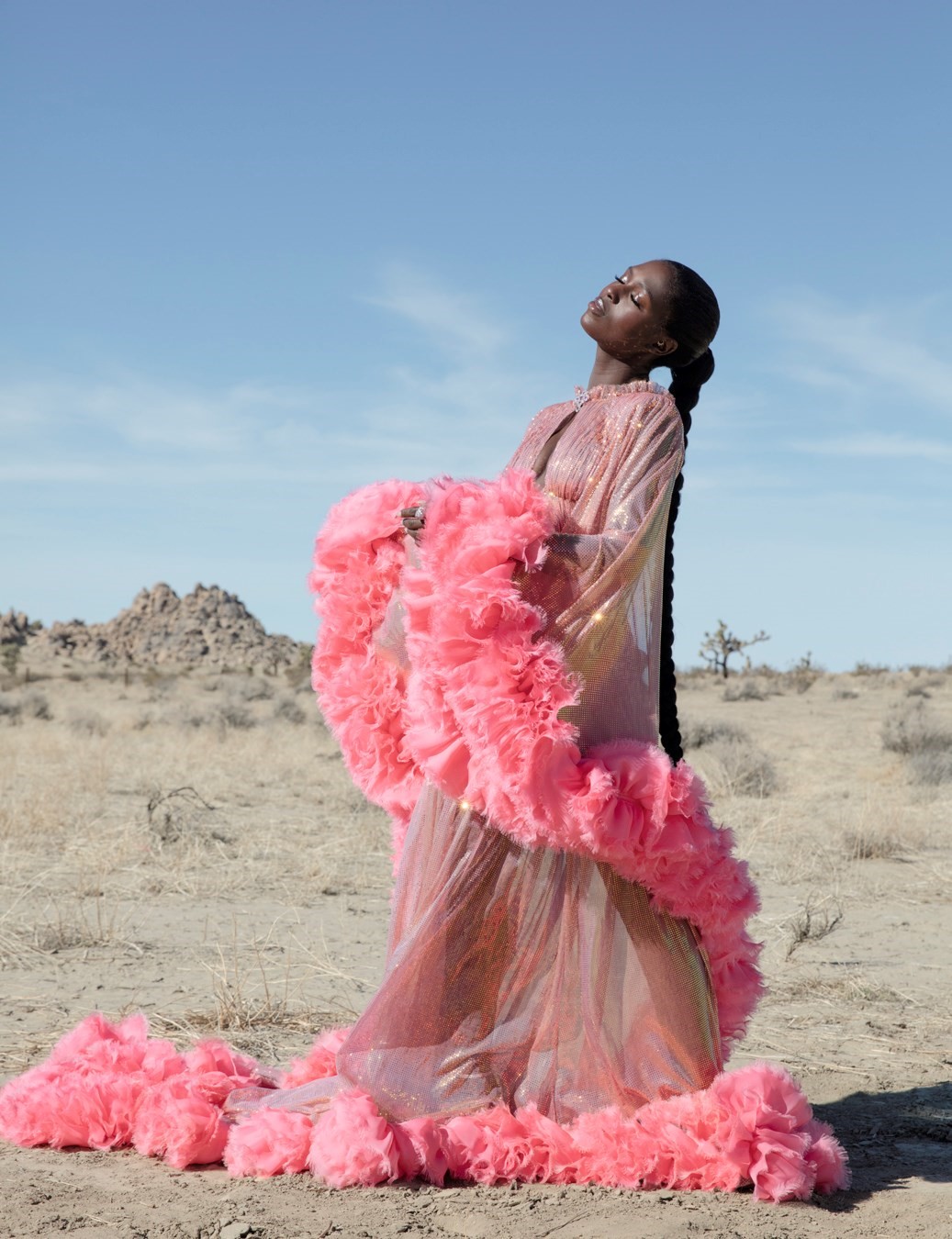
JOH: Yeah. Anyone that was married to Henry.
JTS: Henry was a sociopath.
JOH: You’ve been in America for a really long time. Were there any Britishisms you had to relearn to become Anne?
JTS: Well, first of all, unless you have really practised received pronunciation [RP], you have to work on that. I started acting in the US, Anne Boleyn was my first job in the UK. For me having never worked in the UK, having not gone to drama school, I definitely needed to work on the RP. I worked with this really amazing coach who was there on set to make sure everything sounded how it needed to, because it’s just very particular to sound like you come from that class. And although Anne may have had more of a French accent, we decided to go with something that felt more like RP.
JOH: It was so jarring and exciting to see you speaking in RP for the entire show, because it’s so rare to see a Black performer, even a Black performer who grew up in the UK, get to use that tool in the toolbox. Did you feel a responsibility? Like, “If this is something that works really well it means so much for other Black girls coming up after me.” I feel like you’ve done such significant roles and at a time when people are asking a lot about representation, especially representation of dark-skinned Black women, you have come to the forefront as one of the first names that’s consistently called. What do you feel about that responsibility?
“Every project I go into, I think, who’s the woman that I’ll be on the other side of this? That is the goal and the focus” – Jodie Turner-Smith
JTS: It’s impossible for me to not think about it every time I go into something and not as if it’s some kind of burden, but for the simple fact that being who I am, I know how much it means to see someone who looks like me on screen. I’m so honoured to have the opportunity to portray someone on screen, to create a woman who looks like me on screen and to fill her with life. It’s something I think about in every project I do. Obviously the goal is to create wonderful three-dimensional characters but every time I go into a job, I always think about that because as a dark-skinned Black woman, my body is politicised. Everything I do is political. My existence is political. I wish I could exist in a vacuum but I have an understanding of the systems and the social mores and everything that’s going on around me. And I know that I’m a part of all of that. I also think about my daughter and the fact that I want her to be able to look at the things I’ve done and the women I’ve played and see something powerful and interesting and beautiful and ... complicated.
JOH: I love the punctuation of complicated.
JTS: Yeah. Because sometimes there are certain spaces where people that look like me aren’t expected to be seen. And that’s what I love about a project like After Yang.
JOH: Yes. That’s what I was about to get to. Because After Yang is the definition of complex and moreover it’s this amazing meditation on motherhood. And on top of that, it has this thing happening inside it, because of [the writer-director] Kogonada’s beautifully open imagination. There’s this real opportunity there for this casting to be a model for how we see families in movies going forward, especially speculative fictions. What was it like crafting this family with Colin [Farrell] and Kogonada?
JTS: Kogonada is just an incredibly talented, gentle, amazing spirit and he created that energy on set, held such a safe space for us. The movie’s only coming out now but that was my second film, the movie I did after Queen & Slim. It was my first time playing a mother on screen, and then I became a mother shortly afterwards. And the thing is, even the way that he writes his scripts, he doesn’t write a lot of stage direction. He doesn’t write a lot of things that would indicate to you what your character is going through internally. He just presents the story and he trusts you as the actor to come in and infuse that with life. The film meditates on very specific themes but we all got to add our own specificity to what was happening in our characters’ internal lives. And I love the world that he built, that conception of a future world. If the future world looks like that, I think we would all be in a really good place.
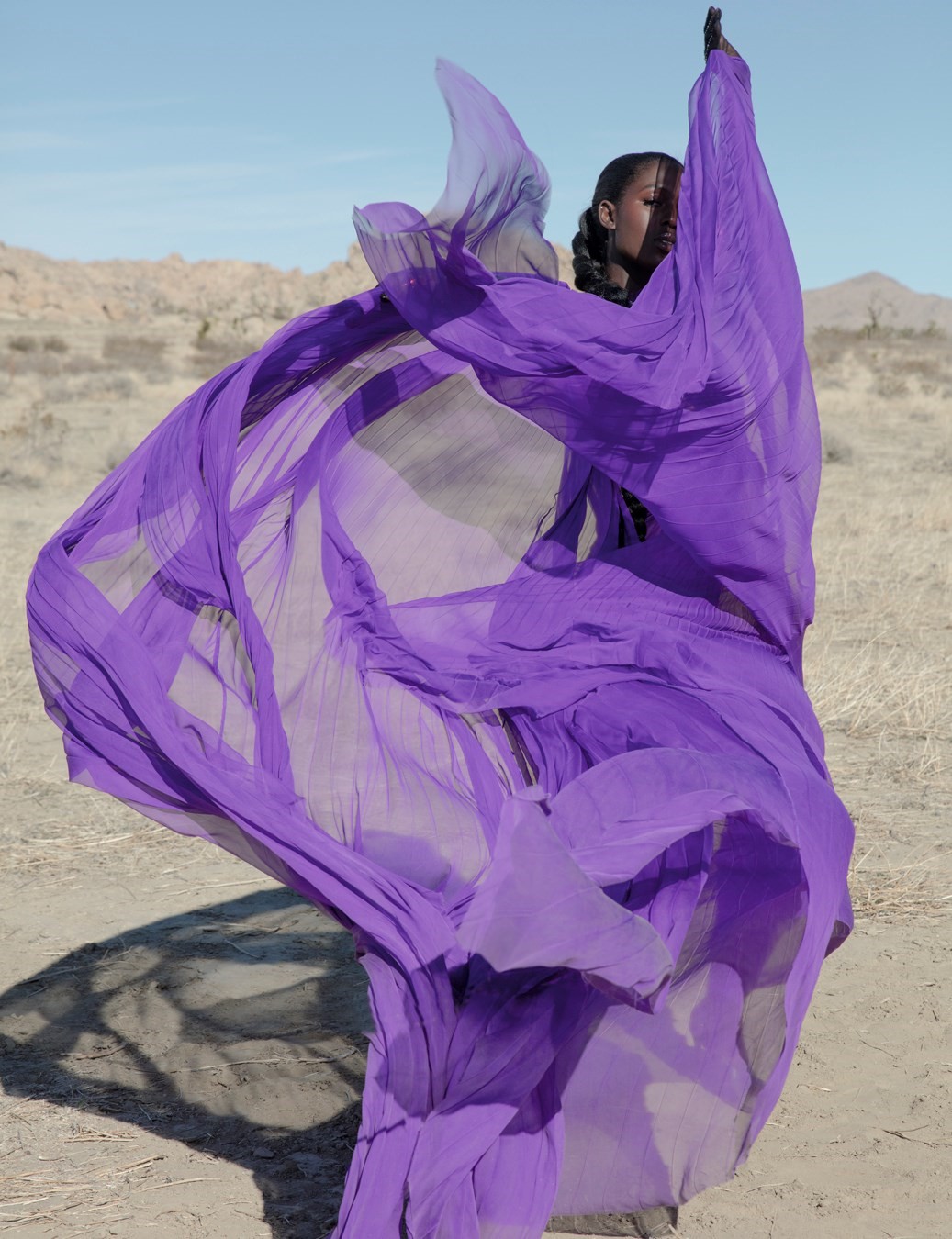
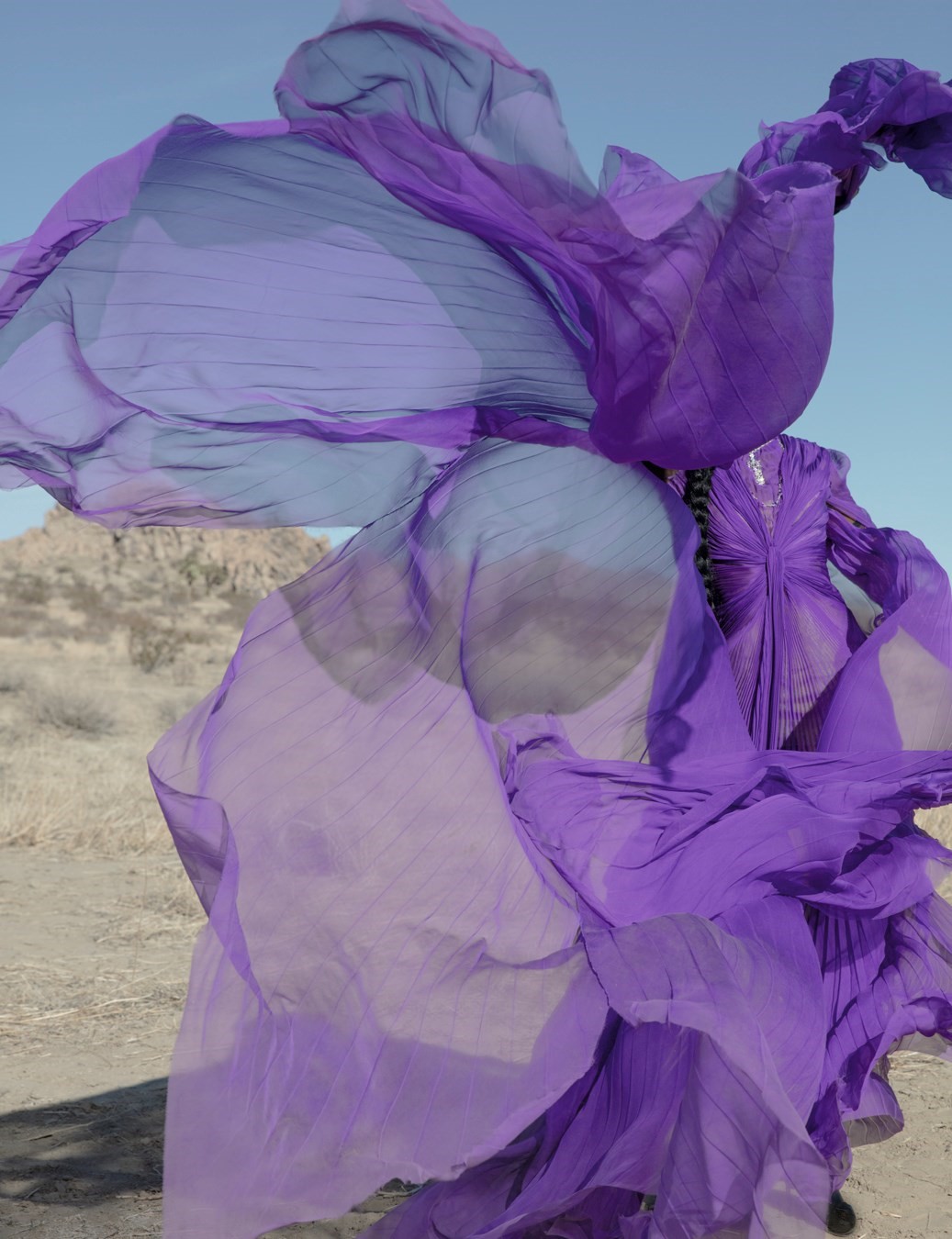
JOH: Yes. What was the mood on set like? I’ve seen all the interviews post-Sundance and there seems to be so much joy on these Zoom calls among the cast – but as exciting and beautiful as the film is, there is also so much heaviness there. How does one navigate that?
JTS: The reason we’re all a fucking love fest every time you see us together is because it was just so supportive and so loving and so generous. The energy felt so good. And it’s interesting because in terms of my relationship with Colin, we are in a marriage where we’re not really hearing or seeing each other and there’s frustration and there’s stress and there’s distance, but there was so much love on that set. We shot most of it in this little house. And just around the corner there was a house that we used as our base camp and everybody had a bedroom and anytime someone was making food in the kitchen, you’d smell that through the house. It always smelled like incense and we’d play with hair and make-up in the front room. It was just this lovely, delicious, warm atmosphere. And honestly, I thrive in that kind of environment. It doesn’t work for me to be dark all day in order to play dark shit. It actually stresses me out more, it’s better for me to feel loved and held by everyone in the crew every time the camera cuts. You’re not always going to get that. And I know that, but when you can create that kind of environment, for me, I feel like I thrive – like I can go deeper into whatever darkness I have to go to when I feel that safety when the camera’s not rolling.
JOH: I love that. I think that’s so true. I feel like we make best with our families. Even if these families are sort of quickly put together – but put together with love. If things feel sterile, it’s so hard to make it work. Looking at your career so far, you’ve led a lot of projects already. You’ve jumped through a lot of genres. We’ve mentioned your first film, which is like an amazing modern-day Bonnie and Clyde, a romantic getaway film that takes place across America. And then you have Anne Boleyn, this historical drama, a television series. You have After Yang, the speculative fiction. And one of the things you’re doing next is White Noise by Noah Baumbach, which is the Don DeLillo adaptation. What fuels how you choose the projects you want to do? Having had such significant work happen at such an early part of your career and being in such a pivotal moment, where the type of actress Jodie Turner-Smith is starts to solidify itself. What helps you decide which direction you want to go in?
“I don’t want to get cancelled for saying this but I feel like there are still so many directors who are creating all-white worlds” – Jodie Turner-Smith
JTS: Honestly, there are different deciding factors every time. Mainly it’s about the story and then there’s who’s telling the story. For Anne Boleyn, I wasn’t necessarily that familiar with Lynsey [Miller]’s work as the director, but I knew that I wanted to tell that story. I was like, “Yes, this resonates with me. It lights me up.” With White Noise, I didn’t really have any script until the very last minute – when I auditioned, I didn’t have a script. It was 100 per cent about who was in the project and that I wanted to work with Noah, who is so talented and amazing. I really consider White Noise to be my first comedy because Noah makes comedies. Everyone’s like, they’re dramas, but they’re actually comedies – in my humble opinion.
I make these choices – I would love to work with that person. And then I jump in and maybe that was a good decision or maybe it is, “OK, what did I learn here?” But every project I go into, I think, who’s the woman that I’ll be on the other side of this? That is the goal and the focus, because you never know how something’s going to turn out. I don’t have any control after I do my bit. It’s really about, “What did I come here to learn? Can I expand from this experience and be better?” The goal is that I just want to get better. And I really hope it never solidifies, what kind of actress Jodie Turner-Smith is, because I want to do so many different things and I don’t want to end up in a box.
JOH: I love the idea that part of what fuels you is a thirst to get better. One of the things I enjoy so much about watching many of my friends who come from so many different backgrounds start to be seen in this industry is that I get to watch them grow on screen in front of me. Not just age-wise, but talent-wise. It’s like watching someone work out from afar over a year or two years and seeing how their body changes and what muscles develop. I’m seeing all my friends develop on screen in front of me right now in their first significant roles on screen. It is exhilarating watching someone learn the muscle of being a lead and then taking what they learnt there to go to the back and work as a supporting actor and build that muscle. And you see that their understanding of how to stand with a scene partner has changed significantly. I’m so excited to see what the Jodie Turner-Smith I meet in four or five years is going to be.
JTS: Me too, Jeremy. Me too.
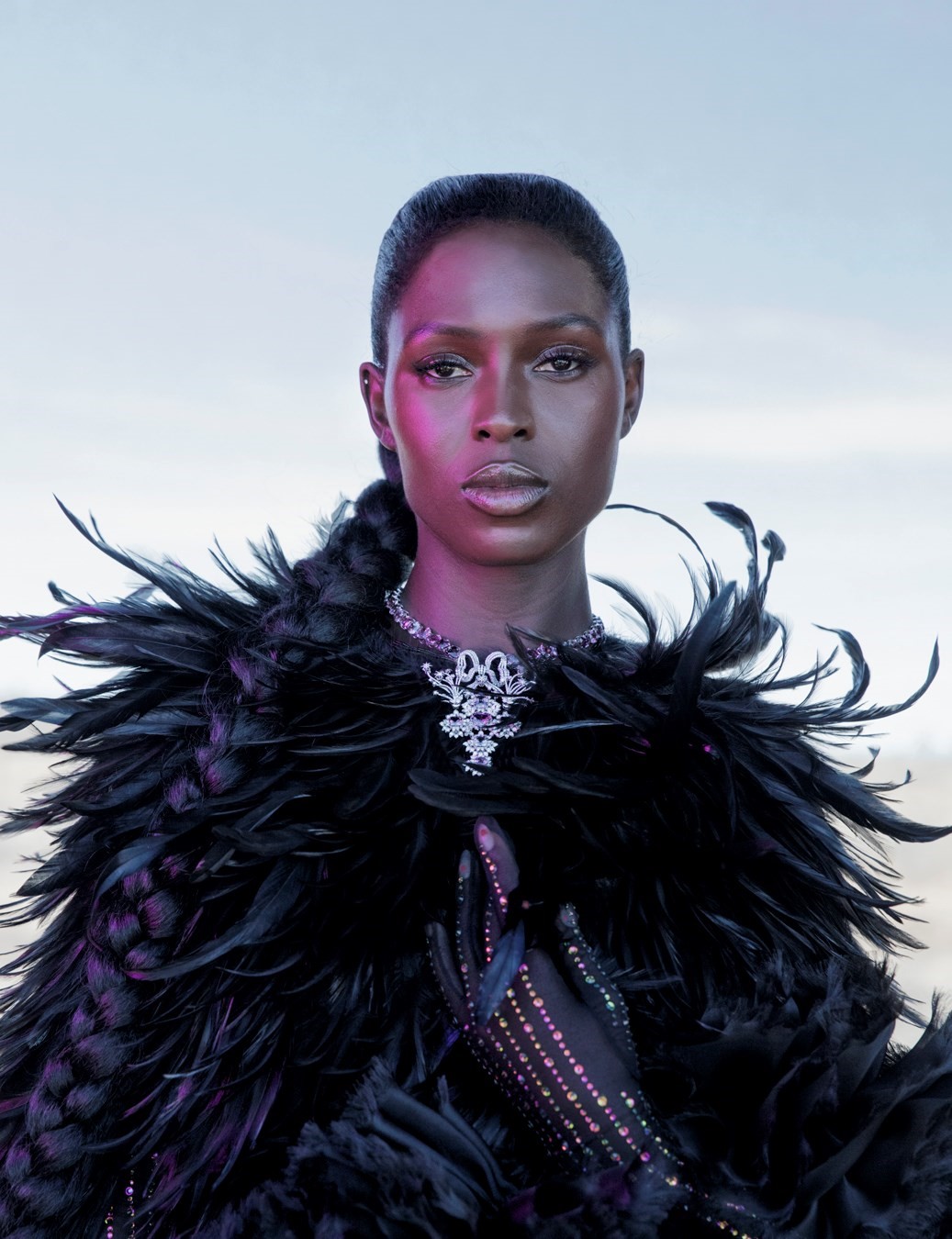
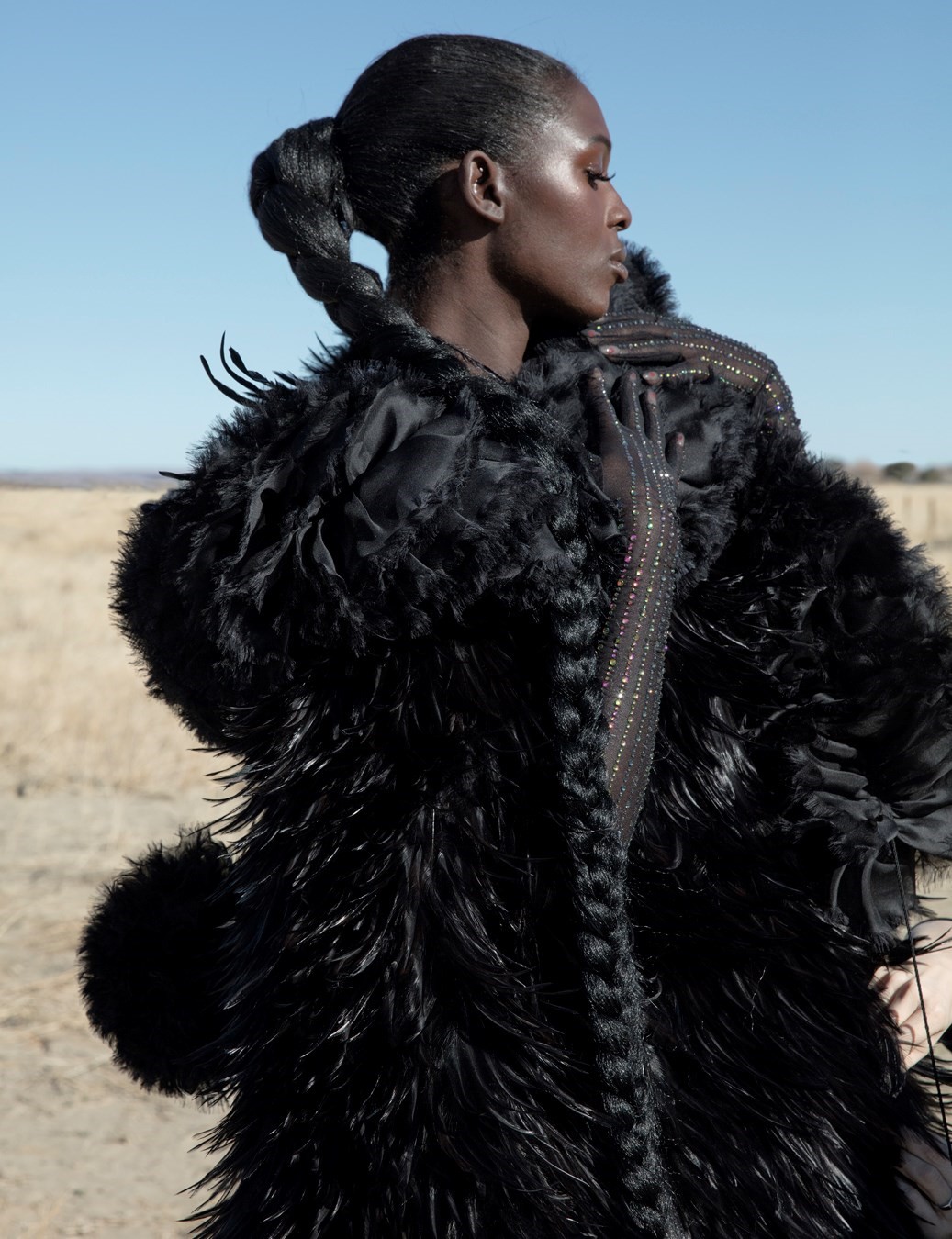
JOH: Are there any projects you want to do that you haven’t yet? I feel like there’s going to be someone reading this, looking to see if you’re right for this thing they’re doing and you just might tell them right now – “This is where I want to grow next.”
JTS: I feel like I always mis-answer this question, because I guess in a way it is your opportunity to say, “Hi, so-and-so, I’d love to work with you.” Like, “Denis, put me in the next Dune, I’m here.”
JOH: Exactly.
JTS: Listen, when I watched Dune I didn’t stop thinking about it for four weeks. I think it was just so incredibly beautiful and poetically done. But you know what else I think about? Other than working with Denis Villeneuve ... And I don’t want to get cancelled for saying this but I feel like there are still so many directors who are creating all-white worlds. I constantly have this conversation with my team, “OK, well, who do I want to work with?” And I realise that these directors I would really love to work with, I’m like, “Well, I don’t really see a place for myself in their world.” But honestly before White Noise, you could have probably said that about Noah Baumbach and here we are.
JOH: Yes, absolutely.
JTS: You know something else? I’m really wondering when I’m going to be working with Jeremy O Harris and Janicza Bravo.
JOH: Well, when you said that White Noise is your first comedy – I was like, well, you were really funny in Lemon too. But yeah, we need to do a comedy together. Before we go, I want to talk about your mom, Hilda, who I had such a great time with when we were shooting.
“There is a legion of women inside me – I think all of them should get to come out and play” – Jodie Turner-Smith
JTS: Shout-out to Hilda. My mom. Don’t you just love her? Isn’t she everything?
JOH: I love her to death. And you have been such a great daughter to her and that was so evident when we were there. Such a great model for how daughters give back to their parents and how parents can stay so integrated in a family’s life if you choose to have them there. I think so many people make excuses for not having their family be involved in their lives, and seeing your family as a model, I was just like, “There are few excuses, right?” I would love to be someone who has integrated a family as you do in the sense that your mom is there with your daughter. She’s there helping you out on long trips and you’re there helping her out, sending her on bougie trips like in How Stella Got Her Groove Back, talking about boys together.
JTS: I feel so lucky that I have my mom with me to not only just be there for my daughter, but to teach me how to be a mom. My mother is a really, really good mother. And now I have her teaching me how to mother my daughter. I never had a close relationship with my grandmas. So the fact that my daughter is really close with her grandma literally makes me cry every time I think about it. To me, the concept of someone being close to their grandma was like a movie and TV thing. It wasn’t real life. I’m just happy to create that world for my daughter. It really does take a village. And I have so many people helping me make it happen.
JOH: That’s so beautiful. I’m so excited that we got to do this conversation together. There’s no one I’d rather wake up to talk to. How is the Bahamas for your family?
JTS: We decided last minute to come here. It’s just me, my husband and my daughter. I’m playing a Bahamian in this TV show, Bad Monkey. I thought, let me come to the Bahamas and be around the people.
JOH: What kind of Bahamian are you playing?
JTS: Anyone who’s read the book will know some of the characters but I am playing a woman who is an Obeah woman, which I love because it just feels witchy and interesting. It’s funny because her name is Dragon Queen and I don’t know how this keeps happening to me, that I keep playing people that are named queen or are a queen, but if this is the way I’m being typecast, I’m down with it.
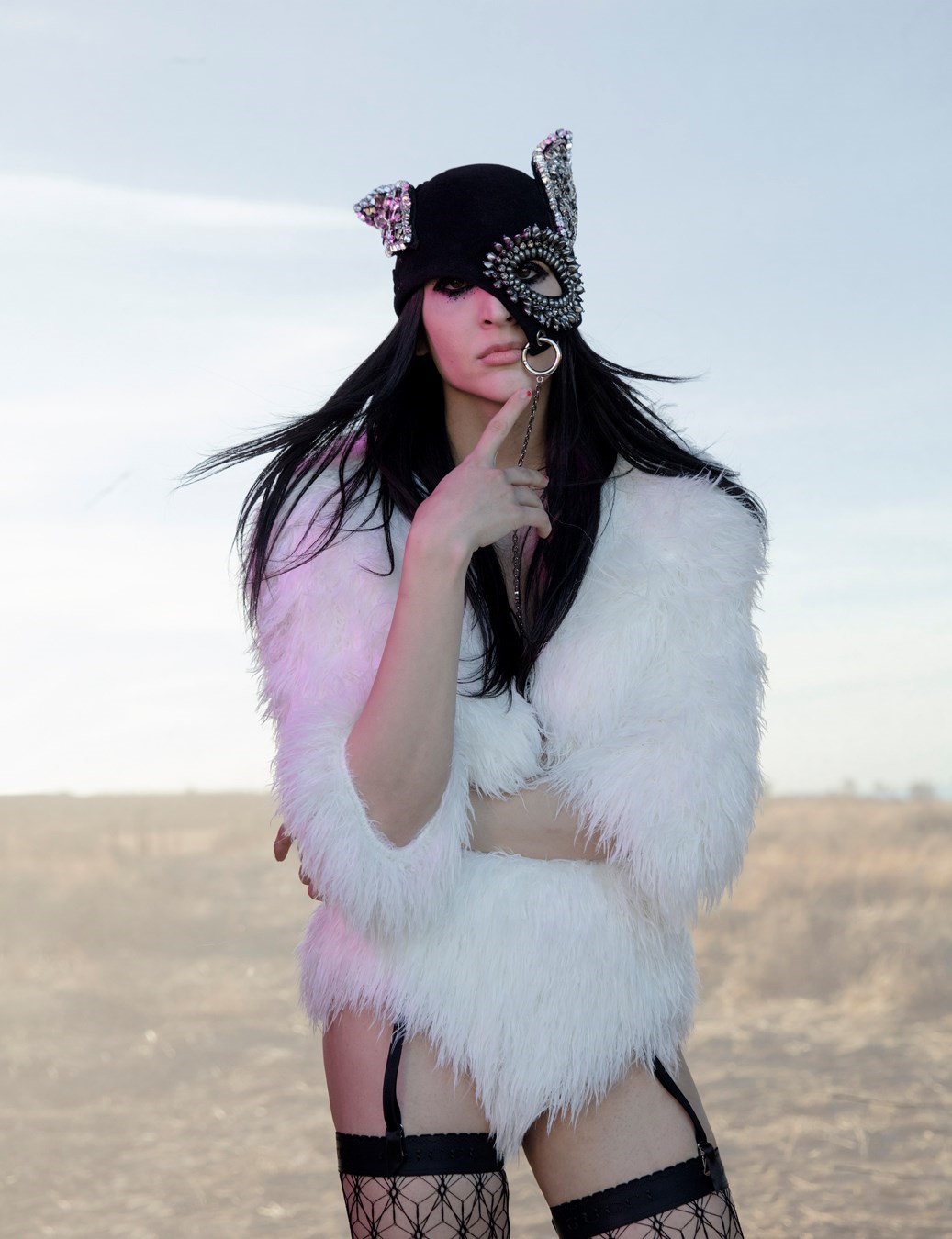
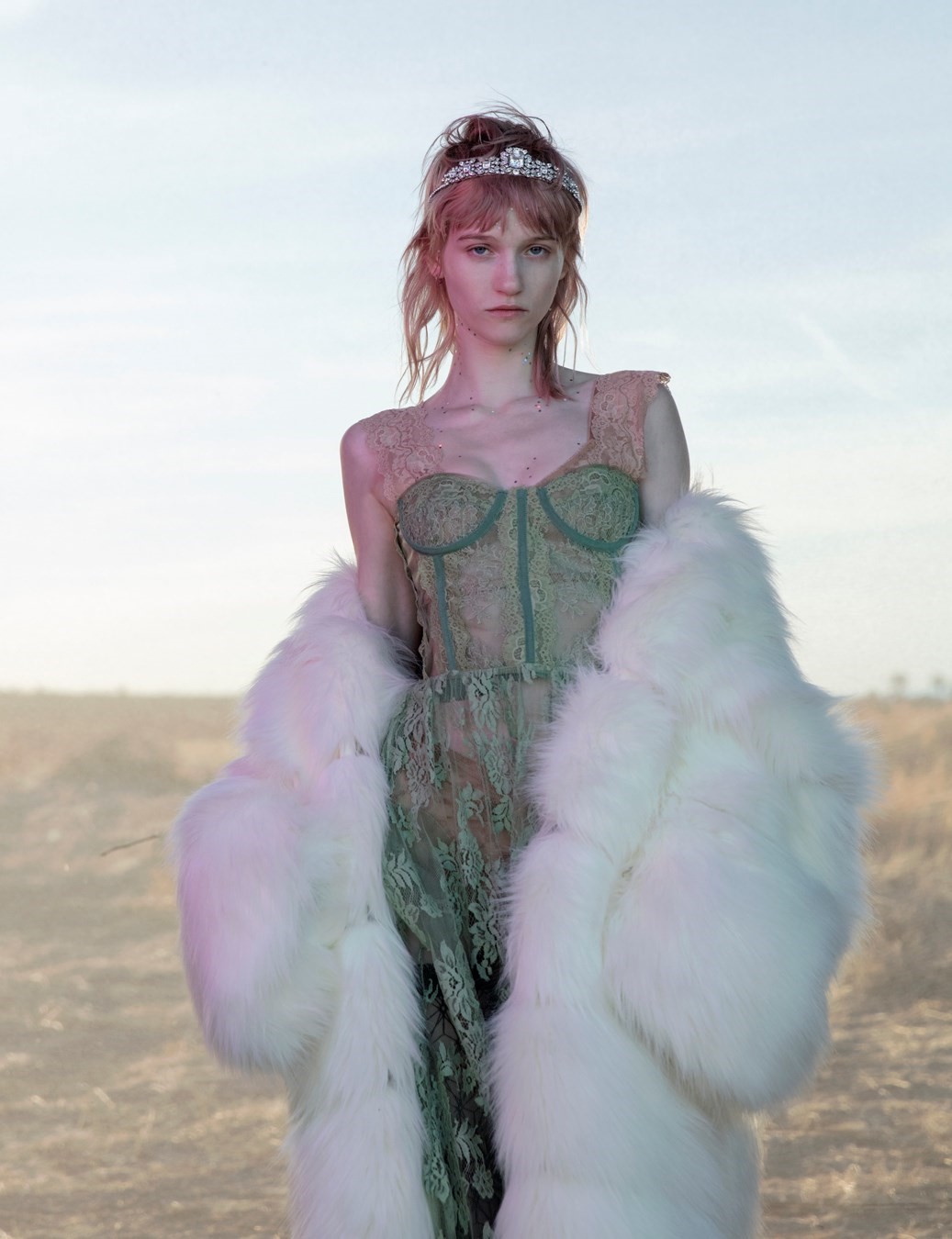
JOH: Oh my God. I love that. I mean, you give off queen shit, you know what I mean? You give off “Don’t fuck with her.” Do people know who you are in the Bahamas yet?
JTS: I don’t think I’m, like, Jen Aniston famous, where everywhere I go people are crowding me. It’s just the kind of thing where people might look at us twice and say, “Is that ... ?” We just go about our business. And we always go to places that are more remote and not too intense, so that we can live a quiet existence anyway because that’s what we prefer. And obviously with a young child, that feels safer. I love my life and I’m so grateful for all of the bounties that it provides. It definitely is a little bit unnerving, fame, especially because a lot of my fame comes from the fact that my husband’s been famous for a long time and I’m a Black woman married to him. As I said, political body. That is a story for people. And that is not what my daughter chose. I want to protect her from that for as long as I can and not let the more negative elements of that affect her. I just want her to feel like a grounded human being, as grounded as one can be when you grow up wealthy.
JOH: Exactly. And I mean, given the fact that she’s with an actual queen every day, queen on and off screen, it’s going to be really hard for her not to realise that she’s a princess.
JTS: And her father treats her like she is a goddess walking on Earth. The Bahamas have a really special history for me and Josh, because this was the first place we came together. You know how it is, when you meet someone, it’s like, are you going to take me on holiday? That’s how I know you’re serious.
JOH: Yes, exactly.
JTS: But we were both working, so we had to wait a little bit. And then we went to the Bahamas and it was this really special trip because we were falling in love with each other but not wanting to say that yet. And I remember he rented this boat and took me on a tour of the Exumas. That’s why we came straight to the Exumas this time. And when we were on this boat ride, the captain kept saying, you guys are going to make a baby out here and you’re going to call it Exuma.
JOH: Oh my God. That’s you guys.
JTS: And we did less than a year later. And now we’ve brought our daughter here. It’s really special to be here together.
JOH: Can I ask you something quickly? I watched you walk in the Gucci Love Parade show on Hollywood Boulevard. I was there screaming. Was there any anxiety about jumping back into the space of fashion after you’d made this transition into acting and even after motherhood, being on a catwalk, walking a Gucci show – did that feel like a daunting thing to do? Or were you just like, “You know what, this is another classic Jodie challenge”?
JTS: First of all, that was a long stretch of Hollywood Boulevard and those shoes we were wearing, I was just like, “Oh my God, bitch, do not fall down.” But it was a little bit of both because I feel like the catwalk is a kind of performance, it’s sort of like being on stage. It’s why I loved it when I did it for the first time – I didn’t realise at the time, but I think it was the performance element of it that I loved so much. I loved re-entering that world as an actor, because it’s different when you do it as an actor versus as a model. I mean, it’s why you didn’t see me all over billboards everywhere. I was never a successful model. But as an actress to now model, I can take everything that I’ve learnt from that and put it to great use. I can come with my personality and everything that I am. And there is a legion of women inside me – I think all of them should get to come out and play.
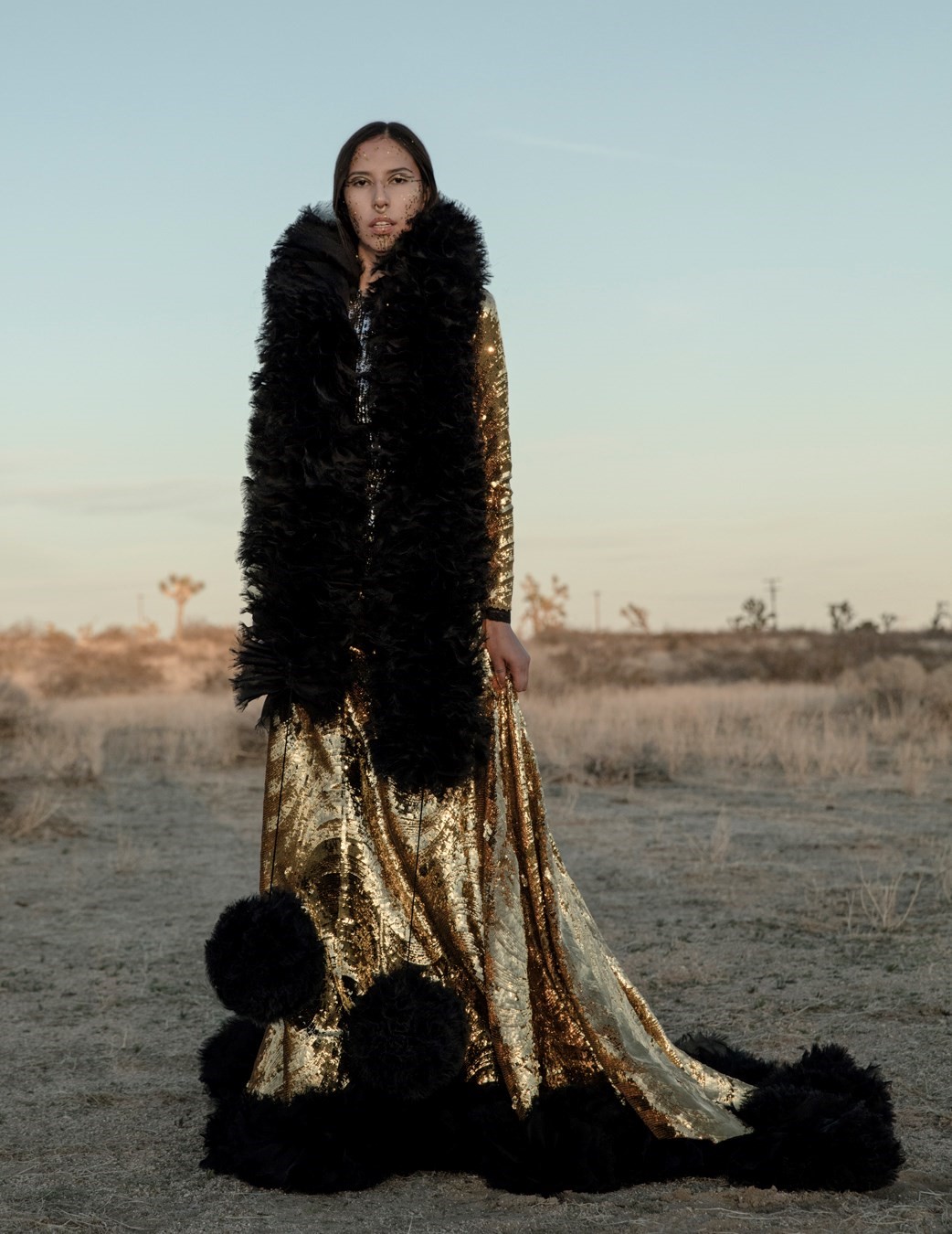
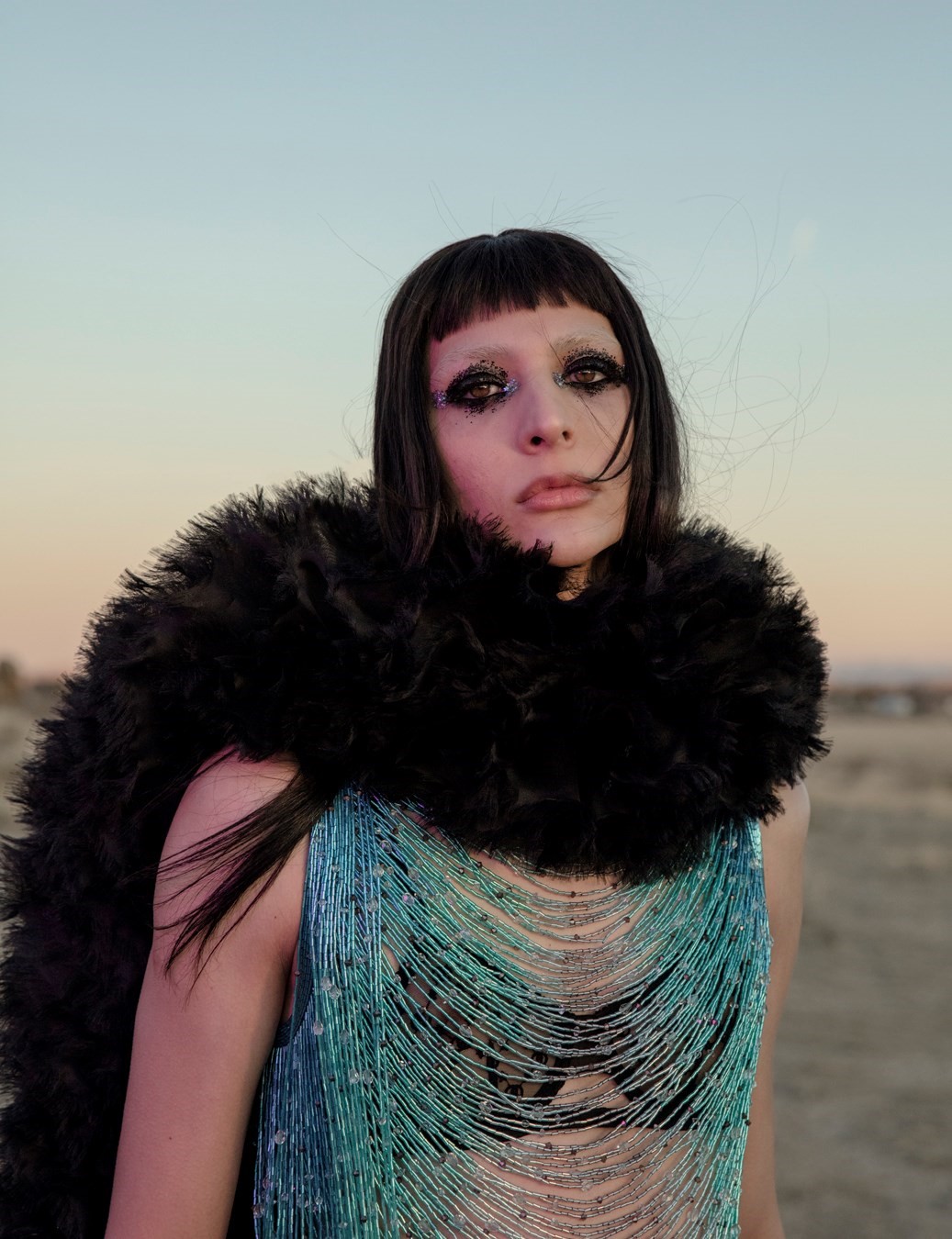
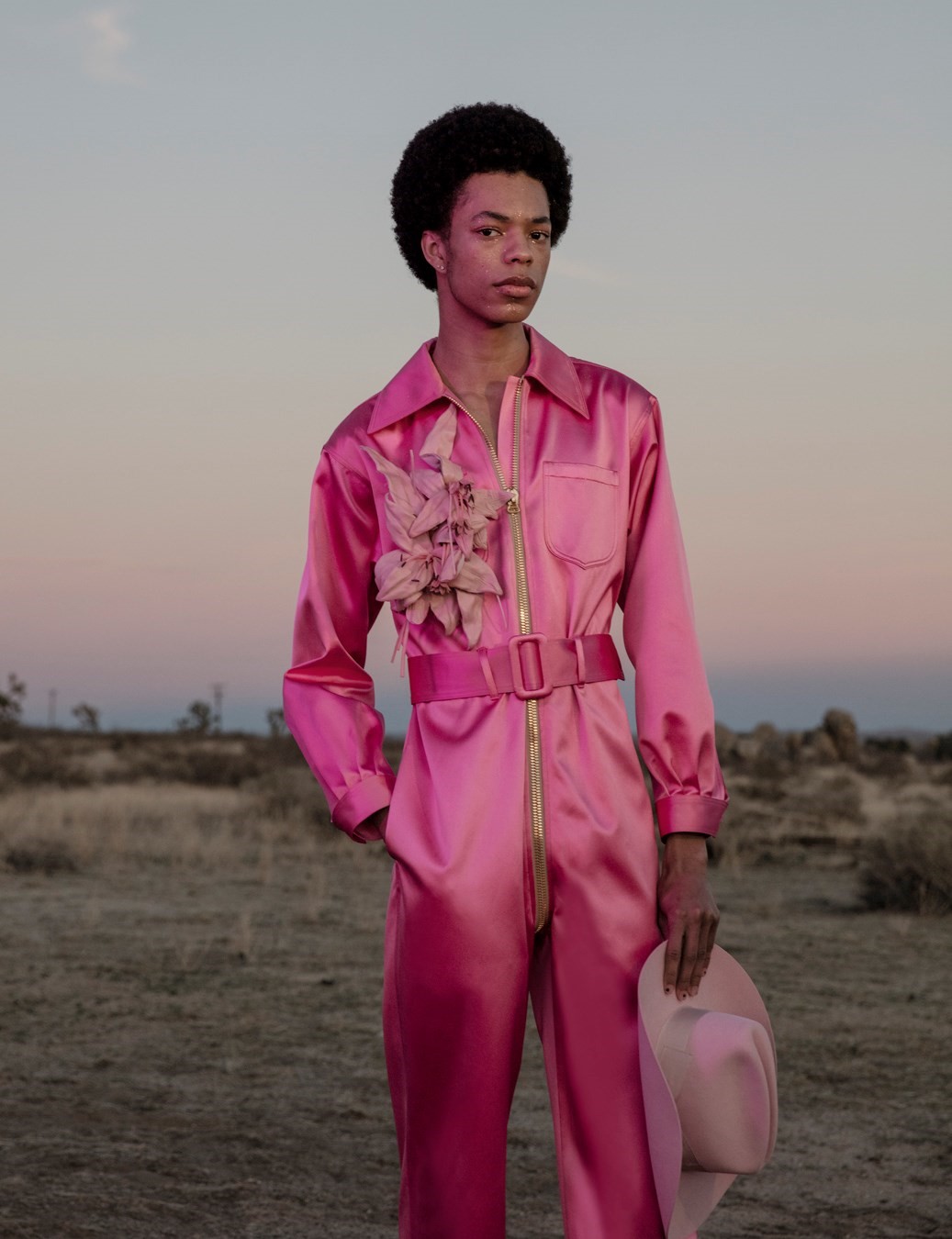
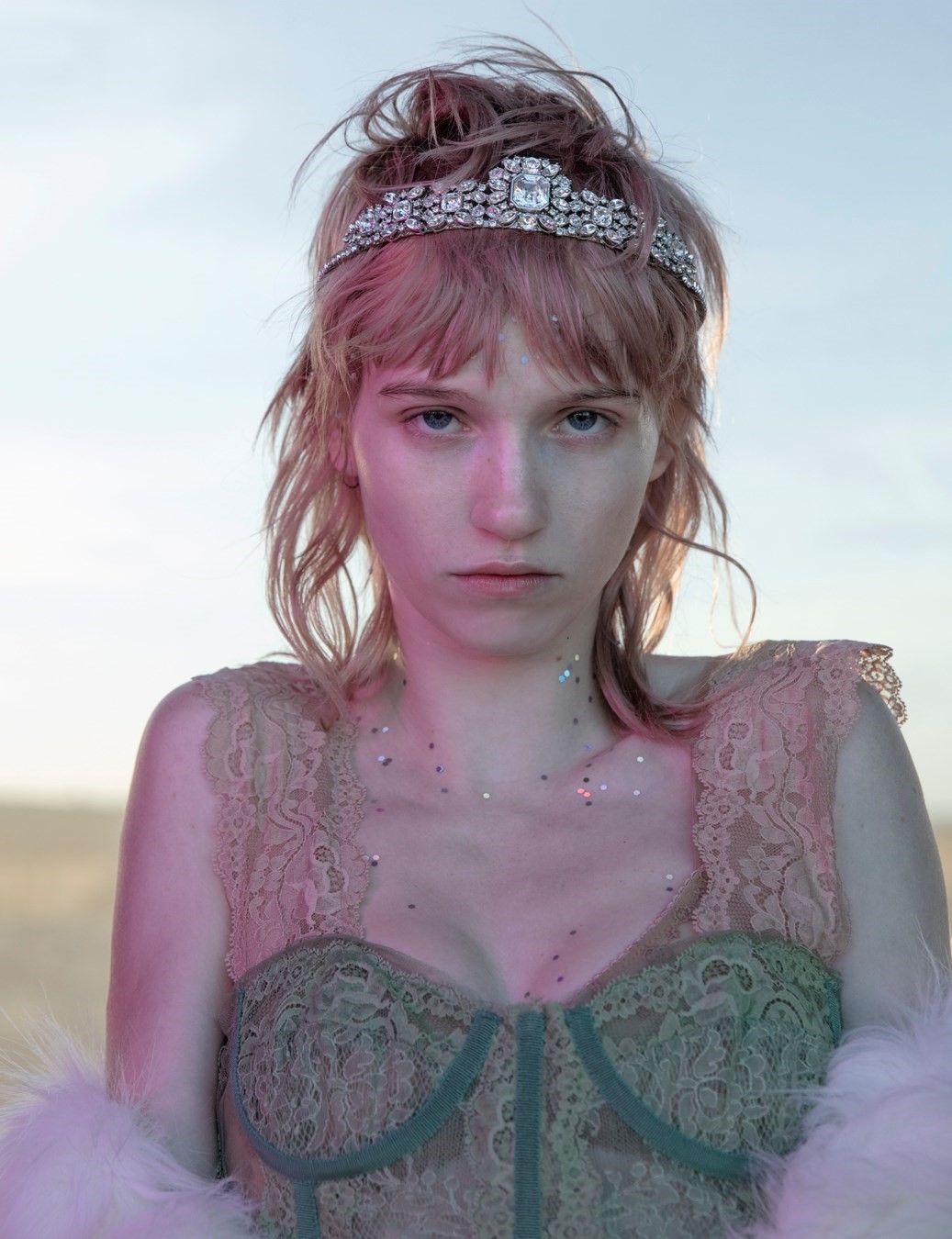
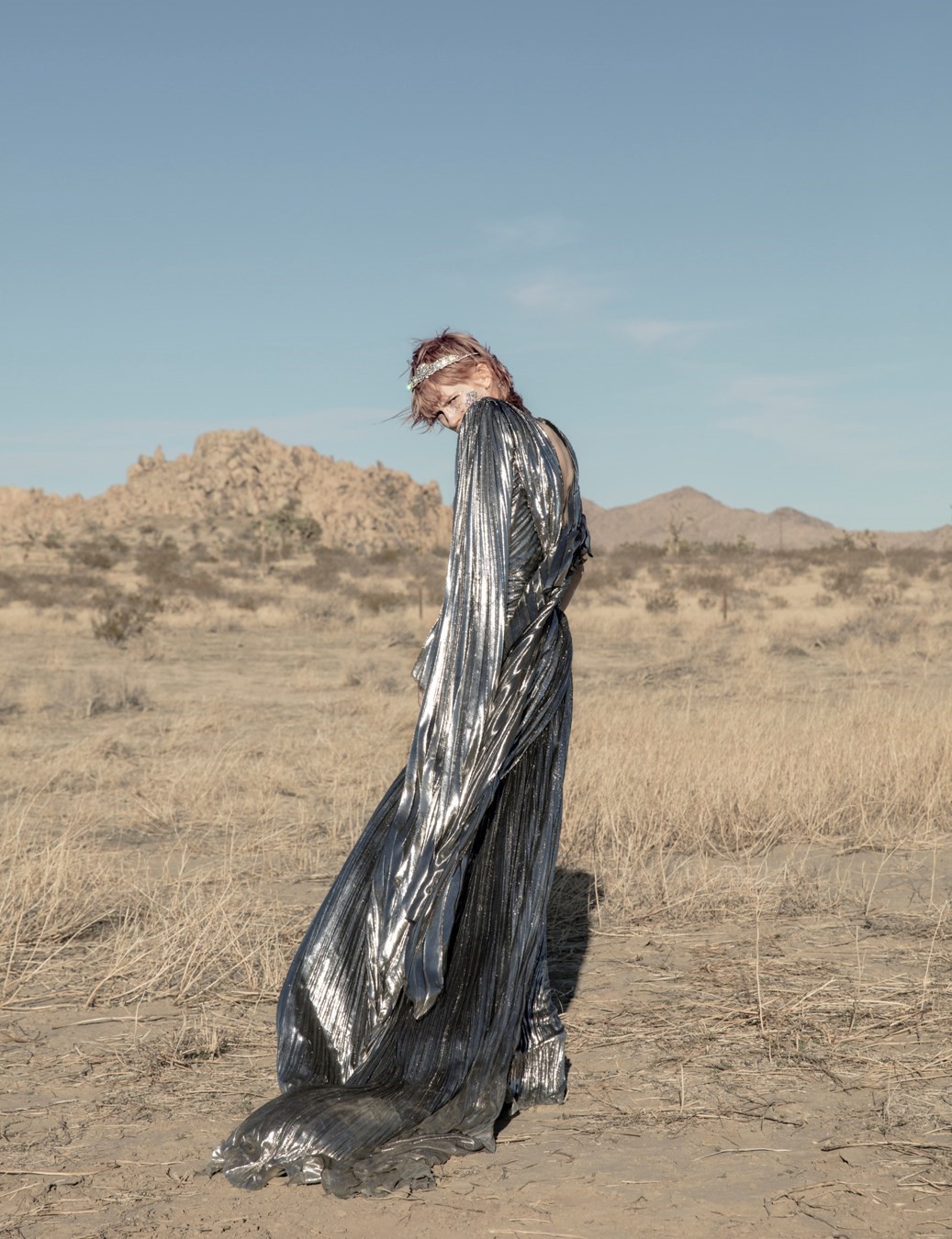
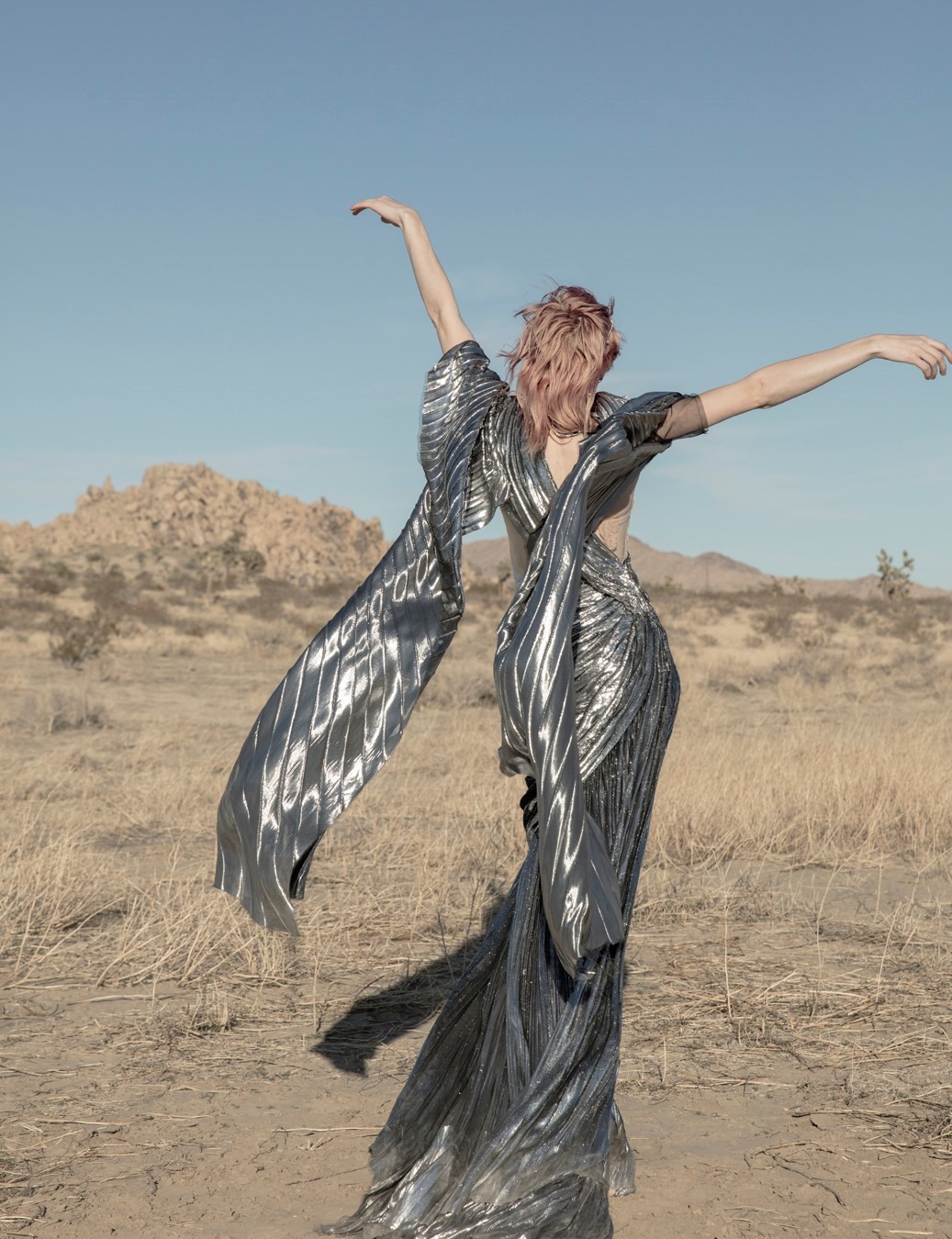
Jodie Turner-Smith: Hair: Ursula Stephen at A-Frame Agency using ORIBE. Make-up: Sheika Daley at Day One Studio using Gucci Beauty. Manicure: Sigourney Nuñez using OPI
Models: Hair: Jenny Kim at Frank Reps using ORIBE. Make-up: Zenia Jaeger at Streeters using SUBMISSION BEAUTY. Models: Lex Peckham at Kollektiv Mgmt, Quannah Chasinghorse at IMG Models, Cici Tamez at New Icon Models and Justin Thomas at Next NY. Casting: Noah Shelley at Streeters. Set design: Bette Adams at MHS Artists. Manicure: Sigourney Nuñez using OPI. Digital tech: James Weir. Photographic assistants: Gregory Brouillette, Milan Aguirre and Carolin Schild. Styling assistants: George Pistachio, Bota Abdul and Megan King. Seamstress: Katie Casey at 7th Bone Tailoring. Hair assistant: Sol Rodriguez. Make-up assistant: Katie Mann. Production: Tiagi. Executive producer: Chantelle-Shakila Tiagi. Producer: Mica Kossakowska. Local production: Arzu Kocman at Productionising. Production assistants: Turner Fair and Brett Goldberger
This article appears in the Spring/Summer 2022 issue of AnOther Magazine, which is on sale here.
After Yang is out now.
